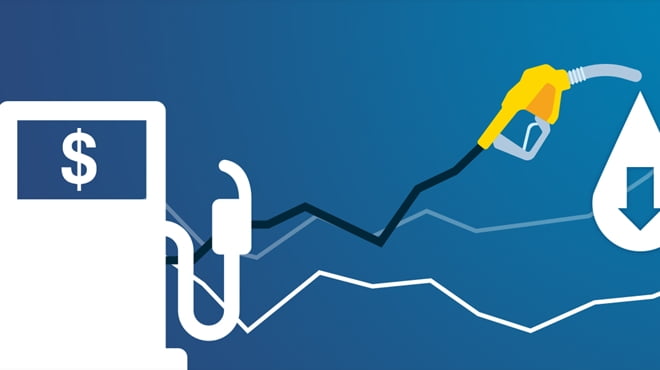South African consumers have had a tough year. This is according to Tsitsi Hatendi-Matika, head of retail at Absa’s wealth and investment management unit, who noted that the most significant impact on their pockets has been thanks to price increases in petrol and diesel.
“In the first week of October 2018, crude oil reached its highest recorded levels since 2014, trading at around $86 per barrel,” she said.
“According to the Global Petrol Prices website, the world average prices for petrol and diesel sit at around $1.17 and $1.09 respectively.
“In South Africa, the dollar price is $1.18, which is in line with the global average price. However, when compared to BRICS (Brazil, Russia, India, China, and SA) and other emerging economies, South Africa is at the upper end of the spectrum.”
The rand
While converting local currency to US dollars makes global comparisons easier, it’s important to note that these figures will be more unpredictable for some countries, such as South Africa, because of the volatility of local currencies against the US dollar, said Hatendi-Matika.
Where petrol prices are concerned, oil importing nations such as Turkey, India, Philippines and South Africa will be most impacted, she said.
“The only protection for these countries will be to increase interest rates to give much-needed support to their currencies.
“The currency plays a large part in adding to inflationary pressures, not only for fuel, but also for foodstuffs and other transportable goods.
“This feeds into decisions made by the Central Bank about the future path of interest rates. The South African rand is the fourth-worst performer within the emerging market basket of currencies for the year 2018.”
Electricity
Hatendi-Matika said that electricity prices also feed into inflation figures and directly impact consumers adversely when prices increase.
This is likely to be further compounded in the coming months after the National Energy Regulator of South Africa (NERSA) announced that Eskom was granted at least 4.4% in increases for the next financial year – kicking in on the 1 of April 2019.
“This amount is over and above the amount they will already be allocated by NERSA,” she said.
“Eskom gets their standard approvals in the Multi-Year Price Determination process, meaning that electricity price increases could be in the double digits when those two figures are added together.
“When compared with the same emerging markets as before, South Africa has the second highest electricity prices as shown below.”
Groceries
Citing Numbeo – a site which calculates the global prices of goods – Hatendi-Matika said that three of the five chosen foodstuffs used to compare prices see South Africa as the most expensive when compared to the basket of chosen emerging market countries.
Numbeo calculates the cost of goods at the minimum recommended amounts for an individual to consume per food type in US dollars.
This article was sourced from BusinessTech; the original publication can be viewed here.




